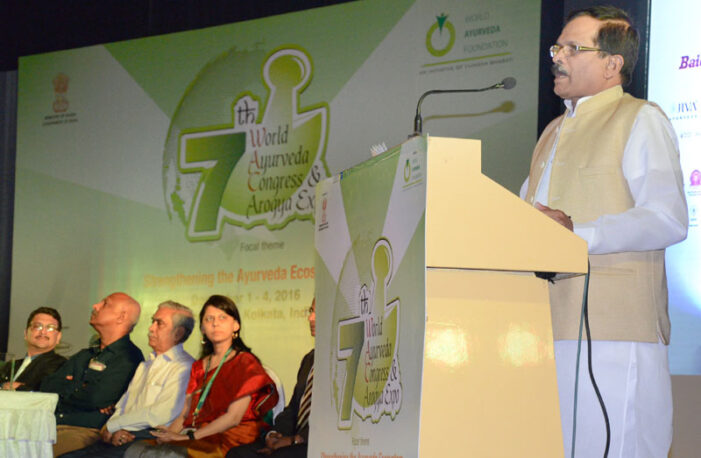Ayush ministry is collaborating with International Agencies in its quest for promotion of cooperation in the field of medicinal plants, the National Medicinal Plants Board (NMPB) signing a Memorandum of Understanding (MoU) with University of West Indies, Trinidad & Tobago in 2014.
To give further impetus to the promotion of international cooperation in the field of Medicinal plants, the NMPB has since revised its “Central Sector Scheme on Conservation, Development and Sustainable Management of Medicinal Plants, 2015”, by including a component on “Bilateral / International cooperation and collaboration with International Agencies”.
The salient features of Delhi Declaration on Traditional Medicines for South East Asian countries are follows:-
I.To promote National policies, strategies and interventions for equitable development and appropriate use of traditional medicine in the health care delivery system.
II. To develop institutionalized mechanism for exchange of information, expertise and knowledge with active cooperation with WHO on traditional medicine through workshops, symposia, visit of experts, exchange of literature etc.
III. To establish regional centers as required for capacity building and networking in the areas of traditional medicine and medicinal plants.
The Ministry of AYUSH has already set up Ayurveda Chair in University of Debrecen, Hungary and Rangsit University, Thailand.
Accordng to the Department of Industrial Policy & Promotion (DIPP), 204 Patents have since been granted on formulations/ processes/ products of herbs / plants, on inventions that satisfy the patentability criteria as laid out in the Patents Act, 1970.
As per the Patents Act 1970 (as amended), patents can be imparted only to new formulations based on products related to herbs/ plants or processes related thereto, which are not in public domain and fulfill the criteria of patentability.
Though Drugs and Cosmetics Act 1940 and Rules 1945, does not have any provision for registration of Ayurvedic formulations, to protect Traditional Medicinal Knowledge of India, the Ministry of AYUSH has created Traditional Knowledge Digital Library (TKDL) in collaboration with Council for Scientific & Industrial Research (CSIR) for digitalization of traditional medicinal knowledge.
More than 3 lakh formulations from the texts of Ayurveda, Unani and Siddha Systems have been digitalized till date under TKDL to protect Traditional Knowledge from misappropriation by providing defensive protection.
This information was given by the Minister of State (Independent Charge) for AYUSH, ShripadYesso Naik in written reply to a question in Lok Sabha.

